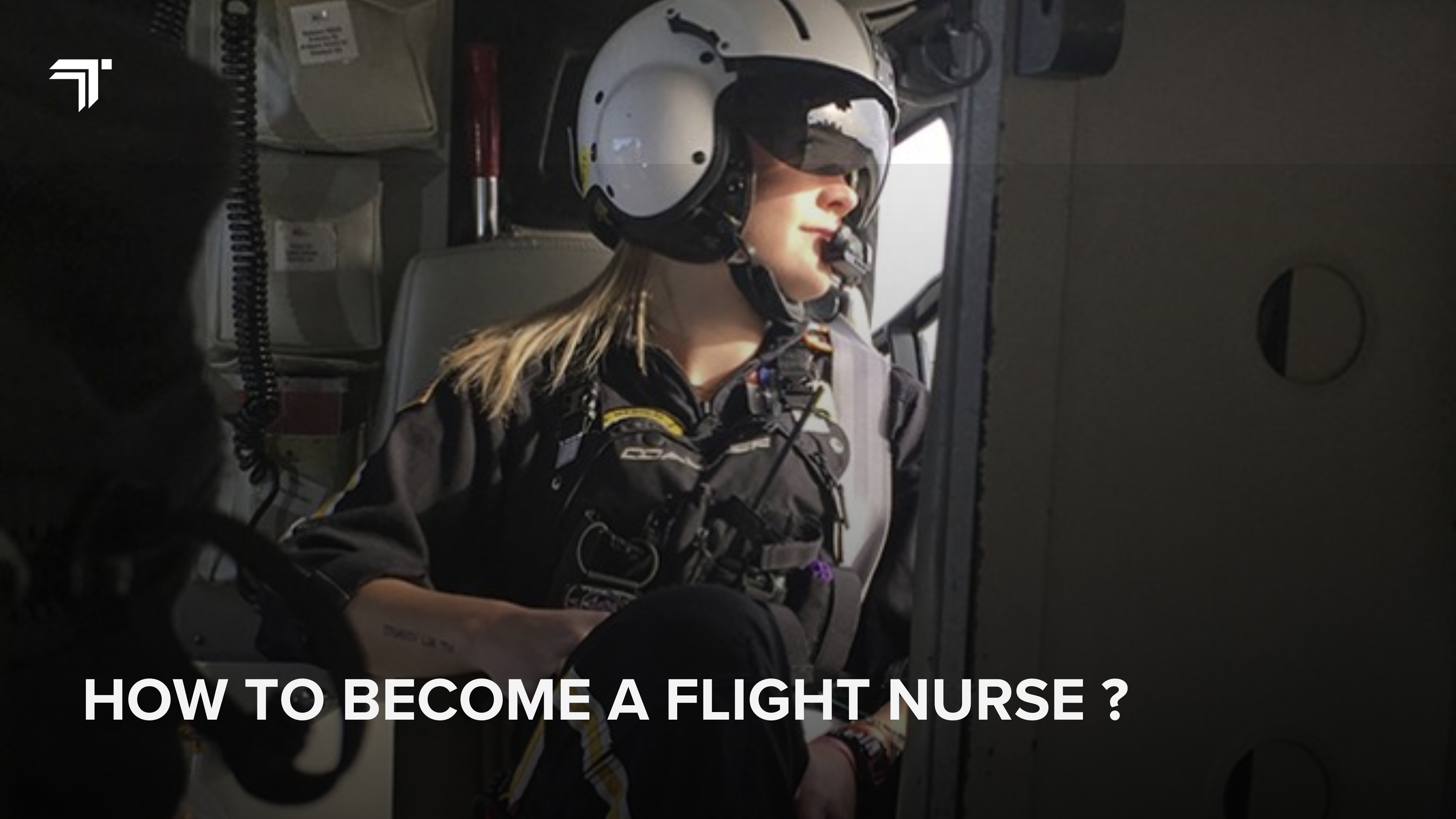
How to Become a Flight Nurse ?
Flight nursing is one of the most rewarding and fast-paced careers in the healthcare and aviation industries.

Flight nursing is one of the most rewarding and fast-paced careers in the healthcare and aviation industries.
How to Become a Flight Nurse
Flight nursing is one of the most rewarding and fast-paced careers in the healthcare and aviation industries. These critical care professionals are responsible for providing life-saving medical assistance while transporting patients via helicopters or fixed-wing aircraft. At TicketClue, we’re passionate about travel and aviation, and we recognize the essential roles that flight nurses play in the air travel and emergency services ecosystem. If you’re wondering how to become a flight nurse, this detailed guide will walk you through every step of the journey.
A flight nurse is a registered nurse (RN) who provides emergency medical care to critically ill or injured patients during air transport. They often work in collaboration with paramedics, respiratory therapists, and flight crews. Flight nurses operate in high-pressure environments, responding to trauma, accidents, and medical emergencies, and are vital in life-flight situations.
Stabilizing and monitoring patients during transport
Administering emergency medications and treatments
Operating life support and medical monitoring equipment
Communicating with hospitals and ground medical teams
Ensuring safety and compliance during medical air transport
Impactful Work: Save lives in critical, time-sensitive situations.
Adventurous Environment: Work in helicopters and aircraft across various terrains and weather.
Professional Growth: Develop advanced skills in trauma care, aviation medicine, and emergency response.
High Demand: Flight nurses are needed in rural, disaster, and military settings where access to immediate care is limited.
Start by earning either:
Associate Degree in Nursing (ADN)
Bachelor of Science in Nursing (BSN)
While an ADN is the minimum requirement, a BSN is preferred by most employers for flight nurse roles due to the increased training and clinical exposure.
After earning your degree, you must pass the National Council Licensure Examination for Registered Nurses (NCLEX-RN) to become a licensed RN.
Most flight nurse positions require 3–5 years of critical care or emergency nursing experience. Recommended areas include:
Emergency Room (ER)
Intensive Care Unit (ICU)
Trauma Units
Cardiac Care Units (CCU)
To enhance your qualifications and increase job competitiveness, consider obtaining the following certifications:
Certified Flight Registered Nurse (CFRN)
Advanced Cardiac Life Support (ACLS)
Pediatric Advanced Life Support (PALS)
Basic Life Support (BLS)
Prehospital Trauma Life Support (PHTLS)
Critical Care Registered Nurse (CCRN) (optional but valuable)
Start by researching air ambulance services, trauma centers, and hospitals with flight transport programs. Popular employers include:
Air Evac Lifeteam
REACH Air Medical Services
Life Flight Network
Med-Trans Corporation
Military and government agencies
Prepare a strong resume highlighting your emergency experience, certifications, and ability to work in high-pressure environments.
Some employers offer on-the-job flight training, while others may expect prior exposure to aviation environments. Topics covered include:
In-flight medical protocols
Aviation safety procedures
Helicopter and aircraft operations
Stay current with your RN license and continue professional development through workshops, advanced certifications, and industry conferences.
Strong clinical judgment and critical thinking
Calm under pressure and excellent stress management
Excellent communication and teamwork
Physical fitness and ability to lift heavy equipment
Adaptability to various weather, terrain, and emergency scenarios
Flight nurses can work in various settings, including:
Air ambulance services (helicopter and fixed-wing)
Trauma centers
Military operations
Search and rescue missions
Remote rural hospitals and disaster zones
High job satisfaction from saving lives
Varied and dynamic work environment
Competitive salary and benefits
Travel opportunities
Continued learning and growth
Physically and emotionally demanding
Long and irregular shifts
Exposure to harsh weather and dangerous conditions
High-stress scenarios and critical decisions
The salary of a flight nurse varies by location, experience, and employer. On average in the U.S.:
Entry-Level: $60,000–$75,000 per year
Experienced: $80,000–$100,000+
Military/Contract Work: Can exceed $110,000 with benefits and hazard pay
Network: Connect with professionals in the field through forums, social media, and job fairs.
Volunteer: Gain experience with emergency services or disaster relief groups.
Stay Updated: Follow industry news, FAA regulations, and medical advancements.
Be Resilient: Prepare mentally and physically for challenging scenarios.
If you're interested in flight nursing, you might also explore:
Flight Paramedic
Emergency Room Nurse
Trauma Nurse
Critical Care Transport Nurse
Search and Rescue Medic
Becoming a flight nurse takes dedication, resilience, and a passion for saving lives in high-stakes environments. For those who thrive on adrenaline, complexity, and purpose-driven work, it's one of the most fulfilling careers in nursing.
At TicketClue, we don’t just help travelers with flight changes and bookings—we support aviation enthusiasts and professionals alike. Whether you're exploring a new career or planning your next move, we’re here to help you take off.
Fly with care. Fly with purpose. Fly with TicketClue.
Author of this article